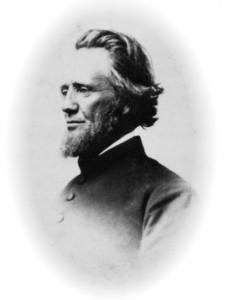 As many of you know, I stopped blogging two years ago, mostly because blogging consumed the time that I had for writing, and I chose to write books instead of blog posts. But I still enjoy sharing thoughts with readers in a more immediate way, so I have been using my Facebook author Page to share book recommendations, reflections on culture, stories from our family, and updates about the books I’m working on. For those of you who don’t use Facebook, or who don’t want to check the page daily, I’m going to start posting a weekly compilation of those thoughts here on my website. This week includes links to articles about the relationship between privilege and racism, the history of a boarding school that admitted African American children as well as white children back in 1847, some thoughts on a new-ish eating program called the Whole 30, and words of comfort from Julian of Norwich in a time of calamity. I hope you enjoy!
As many of you know, I stopped blogging two years ago, mostly because blogging consumed the time that I had for writing, and I chose to write books instead of blog posts. But I still enjoy sharing thoughts with readers in a more immediate way, so I have been using my Facebook author Page to share book recommendations, reflections on culture, stories from our family, and updates about the books I’m working on. For those of you who don’t use Facebook, or who don’t want to check the page daily, I’m going to start posting a weekly compilation of those thoughts here on my website. This week includes links to articles about the relationship between privilege and racism, the history of a boarding school that admitted African American children as well as white children back in 1847, some thoughts on a new-ish eating program called the Whole 30, and words of comfort from Julian of Norwich in a time of calamity. I hope you enjoy!
Monday, September 11, 2017
As someone who spent the bulk of my educational years, and now the bulk of my adult years, in and around independent schools, I often wonder about the positive and negative that comes along with this type of education.
On a boarding school campus, there’s the possibility for lots of engagement with people from all over the country and the world (20 countries represented at the school where we live now, and that’s with only 300 students), the opportunities for more interaction with faculty when they also live on campus, and the opportunity for kids to grow in independence, away from parents, while also having structure and mentors to provide accountability and guidance. On the flip side, these schools are expensive. They are open only to those who get in, and many of them have a legacy of exclusion.
I’ll say more about the legacy of exclusion in a post tomorrow (one of the encouraging aspects of the school where we are now–the Gunnery–is our founder’s commitment to educating kids of all races and genders, starting in the 1840’s). But for today, I want to draw your attention to this article from the New York Times about the first African American students to attend Virginia Episcopal School, a boarding school in Lynchburg, VA. It raises great questions about motivation (Were these students admitted simply to benefit the white students or because they were considered worthy in their own right?), about possibilities (Even amidst some instances of awful discrimination and bullying, the graduates today still talk about the way this education allowed them to prosper, and some of them were exemplary leaders and students and demonstrated to themselves and their white peers the lies of the segregated South), and–more on this tomorrow–about what it means to work towards schools today that aren’t simply inviting students of color but creating spaces where students of color belong just as much as anyone else. “‘The Way to SurviveIt Was to Make A’s’”
Tuesday, September 12, 2017
I wrote yesterday about the legacy many independent schools carry of denying admission to people based upon race (or religion or gender). I am often inclined to forgive those wrongs with a simple, “They just didn’t understand.” “They didn’t know any better.”
But recently my husband, who is the headmaster of the Gunnery, an independent boarding school in Washington, CT, has been reading through the letters of the school’s founder, Frederick Gunn. Gunn was an abolitionist and a radical in many ways, but he was also a man who was trying to build a school, and he needed students to attend the school in order to succeed. Back in 1847, most people assumed that white and black children wouldn’t and shouldn’t go to school together.
As my husband tells it:
One day Mr. Gunn was asked by a prominent local whether he would be willing to admit the children of a black family who didn’t have other school options for their kids because no other schools would admit them. The man who asked Mr. Gunn, Henry Booth, admitted to Mr. Gunn that if Mr. Gunn admitted these students, “it might cause an excitement; it might cause many parents to take their children out; it might break up the school.”
Mr. Gunn, writing to his future wife to relate this interaction, says, “Immediately all our plans of happiness shot through my head; I saw them all dashed to the ground at one blow, and the period of our union postponed to an indefinite future; for, if I fail here, what am I to do? Where shall we find a home?”
Mr. Gunn admits that it’s possible that if he admits these kids, his school could fall apart and their dreams would be dashed. Then, Mr. Gunn writes, “On the other hand, I saw our brethren groping in ignorance, groveling in low debasement, unable to rise to the light which we enjoy, because they are crushed by this spirit of ferocious hate, without a friend and without a comforter, shut from the steamboat, the railroad car, from the school and college,”
And so, Mr. Gunn writes to Abigail, “I answered [Mr. Booth], of course, that I am no critic of skins; that I teach all who come to receive my instructions, and who conduct themselves in such a manner as to promote the ends of the institution; that I never can or will give way to this inhuman and infernal prejudice, — no, not for one hour!”
And if the consequence of admitting these students is that “I am compelled to relinquish my situation here because I cannot sell myself to the skin-aristocrats to help them in heaping contempt upon those whom God loves as well as he does you and me, — why, then so be it, so be it!”
It was clear to Mr. Gunn even 170 years ago that black children and white children deserved the same education because they had the same inherent dignity, the same inherent potential, and he was willing to forfeit his own position, his own dreams, in order to live out those principles.
As much as we are tempted to contextualize the moral wrongs of the past (and present), reading this again makes me recognize what our founders also named, that it is self-evident that all men (and women!) are created equal. And, I might add, it harms us all when we fail to live up to that truth. We have always known better. (For more about the Gunnery’s history)
Wednesday, September 13, 2017
Has anyone here tried the Whole 30?
Wikipedia calls it a fad diet, and I’m inclined to agree, BUT I’m also on Day 10 of a modified version of it. No dairy, grains, legumes, corn. I’ve opted for limited added sugar (I’m still putting honey in my tea and I’m not making every sauce from scratch) and for very limited alcohol (once a week one glass of wine on date night).
Anyway, the point of eating this way is to figure out what various foods do in our bodies. Do they increase joint pain or fatigue? Cause skin problems or digestive discomfort? And this isn’t really they way the founders talk about it, but the other point for me is to figure out how food functions emotionally and spiritually–does it cover up feelings and needs that might need deeper attention?
I’ve already figured out from a 30day alcohol fast last spring that alcohol makes me sick (sinus congestion) if it is allergy season or if I am stressed out. I’m curious to know whether dairy or gluten/grains have any negative effects. (I’m clear on their positive effects–the whole milk yogurt I used to eat every morning brings me enormous pleasure, and the gift of fresh bread, quinoa, granola and summer corn is hard to even put into words.)
Perhaps it is already clear that I’m not planing to stay on the Whole 30 forever, but the experience has also, and already, given me lots to think about. Food brings me a lot of pleasure and contentment and gratitude. On the one hand, it’s good to have to seek out a deeper source of joy and peace than yogurt and granola or a glass of wine. On the other hand, I am also reminded that we are humans who live in bodies. We don’t need a compact pill of nourishment or a tasteless shake. We need real food, not just to nourish us but as a part of the sweetness, the pleasure, the gift of living on this planet.
These 10 days have given me a chance to turn towards a deeper source of both peace and joy than the food I eat–peace and joy that is available no matter what my material circumstances. In the future, I want food to be a reminder of, not a replacement for, that same peace and joy.
And if you are in the slightest bit interested in thinking about things like this, you must read my friend Katherine Willis Pershey’s reflections on doing the Whole 30.How about you? Have you ever fasted from something for Lent or for other reasons? What has it taught you about yourself?
Thursday, September 14, 2017
People are talking about the hurricanes and floods and threat of nuclear war, and for good reason asking “Where is God in the midst of all of this?” It’s not the first time we’ve asked the question, but the answers aren’t easy or obvious. I was so grateful to happen upon an interview with a scholar of Julian of Norwich as at least the beginning of a response to these questions:
I had heard of Julian before–she’s the first woman to have written anything in English that has survived, and she gave us the famous quotation that “all will be well, and all manner of things will be well” which quite frankly, never felt in any way satisfying to me until I heard this interview. Anyway, I learned from Mimi Dixon on this podcast that Julian lived in a town that lost 75% of their population during the plague, probably including her husband and children. The plague came to their town repeatedly and repeatedly decimated the population. If there was ever a time to question God’s goodness and love, God’s concern about human suffering, this was it.
Julian herself fell gravely ill and was considered to be on her deathbed. A priest came to pray last rites with her, but she wasn’t close enough to death yet so he left her with a crucifix and went on his way because so many others were dying all around. She lay with the crucifix for ten hours and experienced a series of “showings” in which she talked with Jesus about sin and suffering and was ultimately convinced of his enduring and faithful love for her and for all humankind.
Listening to this interview not only taught me a lot about the past, but it encouraged me for the here and now and made me want to read Julian’s work (here’s a link to a version of her Revelations of Divine Love in modern English). I hope you’ll have a chance to listen (or read) and be encouraged too.
Friday, September 15, 2017
I’ve read a number of articles this week about racial disparities in our country that are important for people like me (white, affluent) to read in order to understand our current political and social climate. Here are a few that will get you thinking:
Before I even share this article (What I Said When My White Friend Asked for My Black Opinion on Privilege), can I point out that it is written by a woman who founded a website called goodblacknews.com. First of all, how cool. Second of all, how sad that she needed to start that website—she explains why in the post.
Next, an article about real estate and the racial injustice embedded in our current system: (Real Estate and the Realities of Racial Injustice). Here’s the quotation that has kept me thinking: “Florida notes, “The federal government provides an estimated $200 billion in annual subsidies for home ownership via tax deductions for mortgage interest.” The deduction has remained remarkably popular, to the point that McCabe describes it as “one of the most sacrosanct public welfare programs.” More than that, if we account for indirect expenses, it may be that the subsidy costs the federal government as much as $600 billion per year. Calculated in this manner, it could be argued that federal government spends thirteen times as much on home ownership subsidies as it does on “housing assistance to those in need ($46 billion a year).” Rothstein corroborates that claim, noting that the popular rental assistance subsidy known as Section 8 functions not as an entitlement—in fact, the budget remains far too meagre: in 2015, while one million families used the vouchers, another six million qualified but went without because of insufficient budget appropriations. The tax deduction for property taxes and mortgage insurance, however, does act as an entitlement given “to middle-class (mostly white) homeowners” because it has no budgetary limitations.”
I am one of the homeowners who benefits from a government program (tax break/incentive), and I think it is compelling to think of that program as an entitlement program akin to public housing. What about you? Do you see these things as comparable?
Finally, an article about the legacy of racism in the North, which can all too often be overshadowed by the legacy in the South. On a side note, I was struck when researching my upcoming book by the fact that a plantation in the town where I grew up in North Carolina had procured socks and mittens from a clothing company 15 minutes away from where I now live in western Connecticut. In other words, the economy of the nation—North and South—was linked to slavery, and the legacy of racism can be found in all these places too: (The South Doesn’t Own Slavery).





